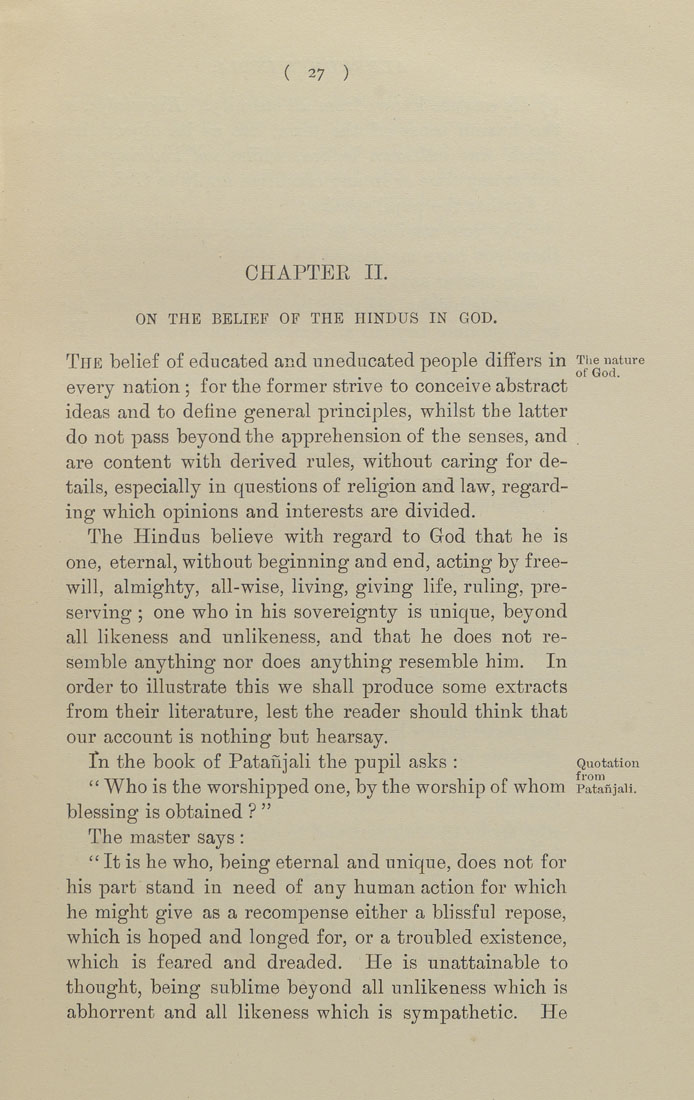Bīrūnī, Muḥammad ibn Aḥmad, Alberuni's India (v. 1)
(London : Kegan Paul, Trench, Trübner & Co., 1910.)
|
||
|
|
|
|
| Page 27 |

( 27 ) CHAPTEE II. ON THE BELIEF OF THE HINDUS IN GOD. The belief of educated and uneducated people differs in The nature . of God. every nation ; for the former strive to conceive abstract ideas and to define general principles, whilst the latter do not pass beyond the apprehension of the senses, and are content with derived rules, without caring for de¬ tails, especially in questions of religion and law, regard¬ ing which opinions and interests are divided. The Hindus believe with regard to God that he is one, eternal, without beginning and end, acting by free¬ will, almighty, all-wise, living, giving life, ruling, pre¬ serving ; one who in his sovereignty is unique, beyond all likeness and unlikeness, and that he does not re¬ semble anything nor does anything resemble him. In order to illustrate this we shall produce some extracts from their literature, lest the reader should think that our account is nothing but hearsay. Tn the book of Pataiijali the pupil asks : Quotation " Who is the worshipped one, by the worship of whom Patanjaii. blessing is obtained ? " The master says: " It is he who, being eternal and unique, does not for his part stand in need of any human action for which he might give as a recompense either a blissful repose, which is hoped and longed for, or a troubled existence, which is feared and dreaded. He is unattainable to thought, being sublime beyond all unlikeness which is abhorrent and all likeness which is sympathetic. He |
| Page 27 |







